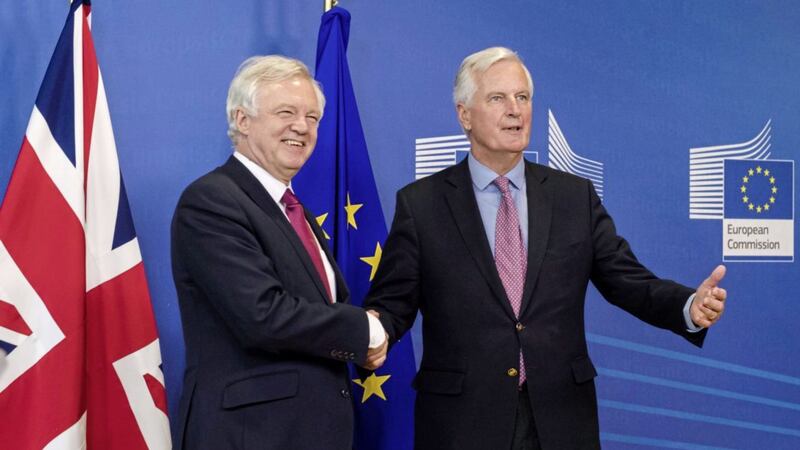THE past couple of weeks have certainly been momentous in terms of the political landscape. The precipitous General Election, called with the intention of giving the Conservatives a clear mandate, has instead muddied the waters with regard to Brexit as they have been forced to seek an agreement with the DUP in order to function as a minority government.
This week we have the start of the Brexit negotiations, obviously a hugely important event in the history of the UK. Add to this the terrible events in London and it seems slightly bizarre that the stock market has sailed serenely upwards, reaching new heights.
It is of course, never as simple as it appears on the surface. The strength of the dollar against sterling has meant that the heavily weighted dollar earners (which include many of the largest FTSE 100 stocks) have benefitted, thereby boosting the headline index level.
Immediately after the election, the pound fell to $1.27 with the next support level at $1.25. The strength of the dollar has clearly been helped by the increase in interest rates in the US by the Federal Reserve, the second increase this year after the rise in March.
Unemployment in the US has fallen to a 10-year low and economic growth is healthy although inflation remains relatively subdued. In contrast, the latest Bank of England Monetary Policy Committee last week did not result in an increase in base rates – despite the obvious rise in inflation in recent months – but in a move that was deemed to be significant the voting was far closer than previously, with five voting for no change and three voting for a rise.
It's impossible to predict where we are going as we are clearly in uncharted waters. There is a growing opinion that we will not be treading the path of a “hard” Brexit as previously outlined by Theresa May, instead a softer approach appears to be more likely as the electorate clearly failed to endorse the former option.
It's impossible too to predict the outcome of the vastly complicated negotiations that lie ahead and for investors and stock market observers it is fairly pointless. It is better by far to focus on the individual investments.
There appears to be a general feeling that purely domestic stocks will face a more difficult time as growth stalls and wages fail to keep up with (rising) inflation. The consumer price index now stands at 2.9 per cent - modest in a historical context, but certainly rising and with most people seeing a much lower rise in their take-home pay, the fear is that the hugely important consumer will reign back on spending and indeed we are already seeing signs of this.
Possibly the focus should be away from purely domestic UK stocks. The FTSE 250, which contains a far higher proportion of purely domestic stocks, has been a stellar performer over the past year or so. It may be a wise time to take some good profits and to look further afield for new opportunities.
:: Cathy Dixon is a director at the Belfast office of Cunningham Coates Stockbrokers, a trading name of Smith & Williamson Investment Management (SWIM). This article does not constitute a recommendation to buy or sell investments and the value of any shares may fall as well as rise. Investments carry risk and investors may not receive back the amount invested. The views expressed are those of the author and not necessarily of SWIM.








